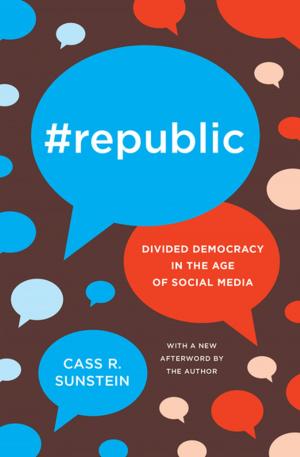Colormute
Race Talk Dilemmas in an American School
Nonfiction, Social & Cultural Studies, Social Science, Cultural Studies, Minority Studies, Reference & Language, Education & Teaching, Educational Theory, Educational Reform| Author: | Mica Pollock | ISBN: | 9781400826124 |
| Publisher: | Princeton University Press | Publication: | April 11, 2009 |
| Imprint: | Princeton University Press | Language: | English |
| Author: | Mica Pollock |
| ISBN: | 9781400826124 |
| Publisher: | Princeton University Press |
| Publication: | April 11, 2009 |
| Imprint: | Princeton University Press |
| Language: | English |
This book considers in unprecedented detail one of the most confounding questions in American racial practice: when to speak about people in racial terms. Viewing "race talk" through the lens of a California high school and district, Colormute draws on three years of ethnographic research on everyday race labeling in education. Based on the author's experiences as a teacher as well as an anthropologist, it discusses the role race plays in everyday and policy talk about such familiar topics as discipline, achievement, curriculum reform, and educational inequality.
Pollock illustrates the wide variations in the way speakers use race labels. Sometimes people use them without thinking twice; at other moments they avoid them at all costs or use them only in the description of particular situations. While a major concern of everyday race talk in schools is that racial descriptions will be inaccurate or inappropriate, Pollock demonstrates that anxiously suppressing race words (being what she terms "colormute") can also cause educators to reproduce the very racial inequities they abhor.
The book assists readers in cultivating a greater understanding of the pitfalls and possibilities of everyday race talk and clarifies previously murky discussions of "colorblindness." By bridging the gap between theory and practice, Colormute will be enormously helpful in fostering ongoing conversations about dismantling racial inequality in America.
This book considers in unprecedented detail one of the most confounding questions in American racial practice: when to speak about people in racial terms. Viewing "race talk" through the lens of a California high school and district, Colormute draws on three years of ethnographic research on everyday race labeling in education. Based on the author's experiences as a teacher as well as an anthropologist, it discusses the role race plays in everyday and policy talk about such familiar topics as discipline, achievement, curriculum reform, and educational inequality.
Pollock illustrates the wide variations in the way speakers use race labels. Sometimes people use them without thinking twice; at other moments they avoid them at all costs or use them only in the description of particular situations. While a major concern of everyday race talk in schools is that racial descriptions will be inaccurate or inappropriate, Pollock demonstrates that anxiously suppressing race words (being what she terms "colormute") can also cause educators to reproduce the very racial inequities they abhor.
The book assists readers in cultivating a greater understanding of the pitfalls and possibilities of everyday race talk and clarifies previously murky discussions of "colorblindness." By bridging the gap between theory and practice, Colormute will be enormously helpful in fostering ongoing conversations about dismantling racial inequality in America.















